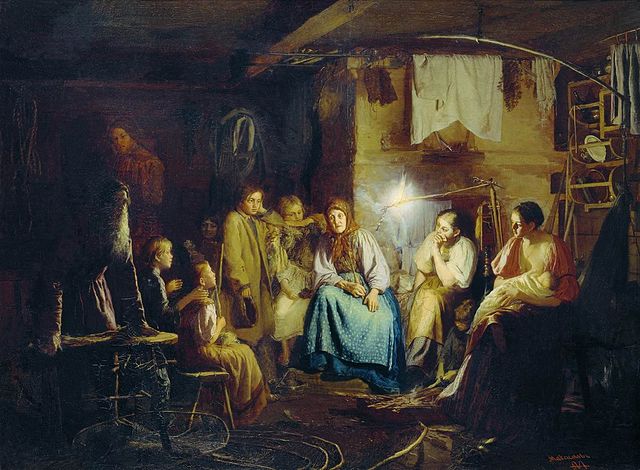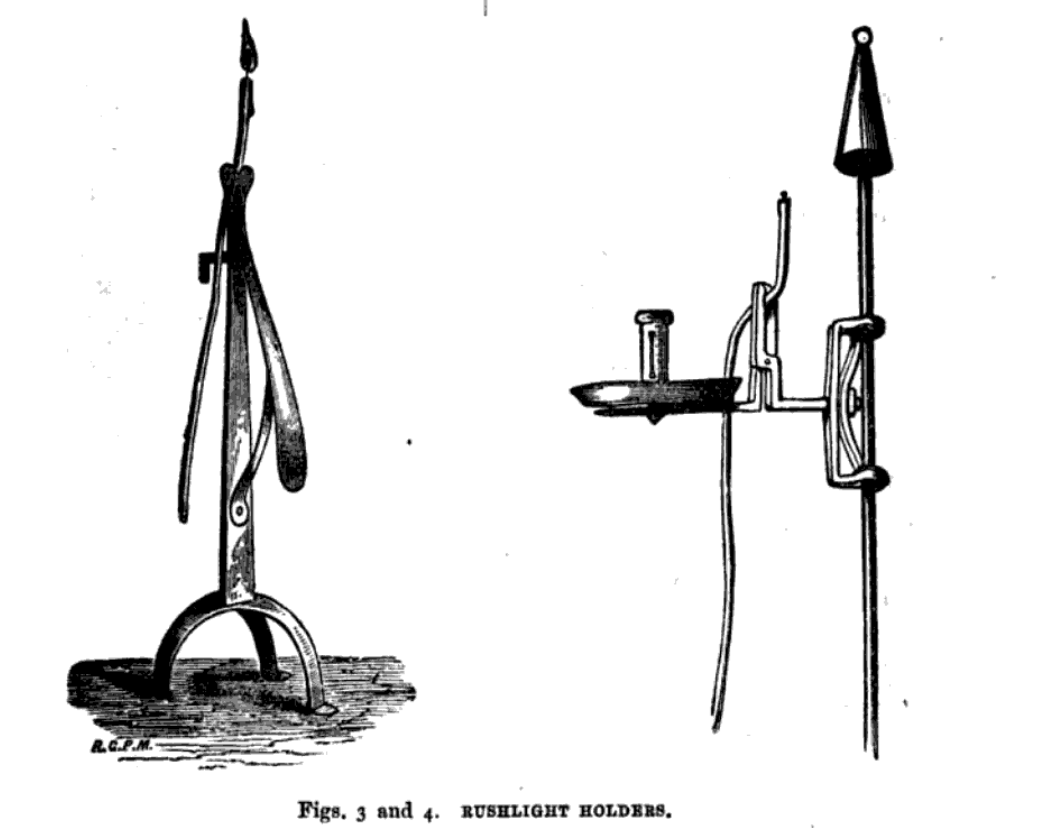In book V of Aurora Leigh (1856) by Elizabeth Barrett Browning, Sir Blaise claims that in former days men chose their wives for their virtue and not for their décolletage:
“My dear young friend, if we could bear our eyes
Like blessedest St. Lucy,† on a plate,
They would not trick us into choosing wives,
As doublets, by the colour. Otherwise
Our fathers chose,—and therefore, when they had hung
Their household keys about a lady’s waist,
The sense of duty gave her dignity:
She kept her bosom holy to her babes;
And, if a moralist reproved her dress,
’Twas, ‘Too much starch!’—and not, ‘Too little lawn!’”‡† Lucia of Syracuse, whose eyes were gouged out before she was martyred. ‡ Lawn, a type of cloth.
A “young man with the German student’s look” replies with an elaborate metaphor comparing the ideals of Sir Blaise’s forefathers with the burning of a rushlight:
“I ask you,—have we leisure, if we liked,
To hollow out our weary hands to keep
Your intermittent rushlight of the past
From draughts in lobbies? Prejudice of sex,
And marriage-laws … the socket drops them through
While we two speak,—however may protest
Some over-delicate nostrils, like your own,
’Gainst odours thence arising.”
In the metaphor, the antiquated ideals (sex-prejudice and marriage-customs) are compared to drops of tallow from the rushlight that fall to the floor, and “the socket drops them through” seems to be an anastrophe for “they drop through the socket”. But how exactly does this work? What little I know of rushlights is they were not planted in a socket like a candle, but held horizontally (or at an angle) by a clip, as in this 1867 painting by Vassily Maximov:

